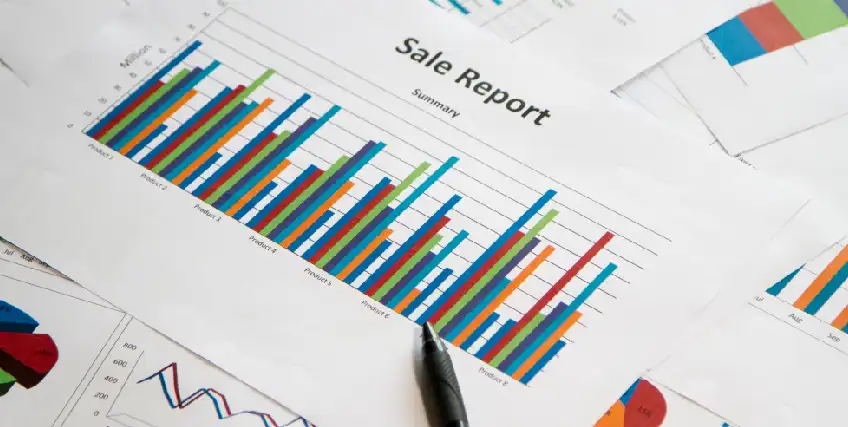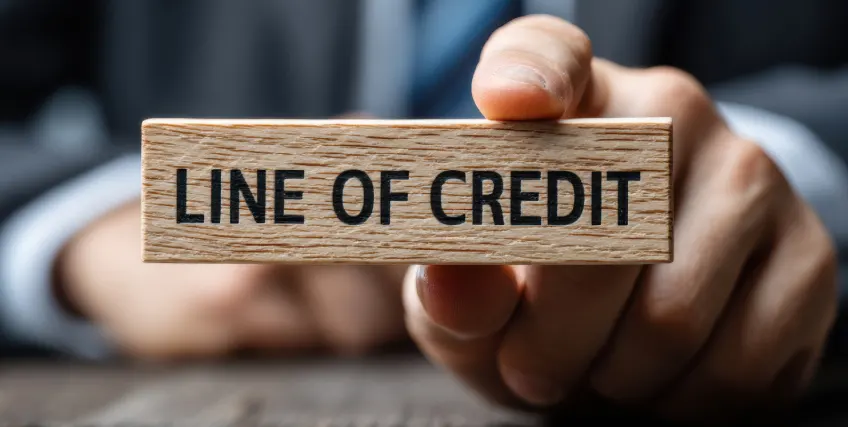5 Top Requirements For Securing A Business Line Of Credit
September 05, 2025 | Last Updated on: September 05, 2025

Many businesses can only grow so much with their existing operations. To really accelerate growth, you need business capital. While there are many small business loans and financing options out there, they often have strict eligibility requirements and can saddle a business with too much debt.
A business line of credit is a more flexible option. This financing solution can be attractive for small business owners who need access to cash flow but don’t want to be stuck with a fixed repayment plan. The requirements are less strict than those of other financing options.
In this article:
- Learn how business lines of credit work and who provides them.
- Understand the difference between secured and unsecured lines of credit.
- Explore the small business line of credit requirements to ensure you qualify.
What Is A Small Business Line Of Credit?
A business line of credit is a mix of a short-term business loan and a business credit card. Unlike a term loan, you don’t make monthly payments against a lump sum given upfront; unlike a credit card, you aren’t charged steep interest rates.
Business lines of credit are short-term financing options that small business owners use in order to improve cash flow or get fast access to working capital. They’re a flexible financing option for growing businesses. The revolving line of credit is open and available to you whenever you need it with a certain credit limit, and you only pay interest on the amount you’ve drawn. Once you pay back any portion of the line of credit that you’ve used, you can borrow it again.
Why Would I Need A Business Line Of Credit?
Small business owners often need short-term cash infusions and easy access to working capital to grow and expand, cover unexpected purchases or capital acquisitions, or compensate for cash flow during slower periods of the year. Business lines of credit offer greater flexibility than other short-term financing, options and thus are a great option to add to your financing arsenal.
While any business could use a line of credit, they’re especially popular with seasonal businesses, contract businesses like construction companies, and invoice-based businesses like marketing and staffing agencies or other business services.
What’s The Difference Between Secured and Unsecured Lines of Credit?
Lines of credit come in two main forms: secured and unsecured. Secured lines of credit are guaranteed by business assets like accounts receivable or real estate, and because of this often come with lower interest rates. An unsecured business line of credit has no such guarantees, sort of like a business credit card, and thus comes with higher interest rates.
The small business line of credit requirements for a secured loan are less stringent, since you’re providing collateral to serve as a personal guarantee. An unsecured loan will likely require stronger annual revenue reports, a high personal credit score, and/or a longer time in business.
The Most Important Business Line of Credit Requirements
Whether the financial institution is a traditional bank or an online lender, getting a business line of credit relies on the same key principles. We’ve outlined the five most important requirements to meet in order to maximize your chances for approval.
1. Good Credit History
Just like any other type of financing, lenders want to see that you and your business have a good history of handling credit. Lenders will pull personal credit scores, business credit reports, and other indicators of creditworthiness in this evaluation.
If you or your business has a history of poor credit or delinquency, it can hurt your chances of qualification, restrict the loan amount, and steepen the rates charged.
2. Strong Business Financials
Banks want to see that your business is operating successfully and will be able to handle the burden of additional debt. Lenders look at previous loans and their repayment terms, profit/loss statements, your company’s balance sheet, balances in bank accounts, and anything else they see as necessary to determine your company’s ability to take on extra debt.
3. Optimized Standard Financial Ratios
In their evaluation, most lenders use common financial ratios to understand whether lending to a business is worth it. Below are the three most important ratios to consider:
- Debt-to-Equity Ratio: This ratio measures a company's assets against its debts as expressed by shareholder equity.
- Current Ratio: This ratio measures a business’s ability to pay for expenses. It compares total assets to total liabilities.
- Debt-Service Coverage Ratio: This is a measure of cash flow available to deal with current debt obligations. It evaluates net operating income against your total debt service. A value above one means that you can deal with current debt obligations.
The theme surrounding these ratios is an evaluation of liabilities on your balance sheet and how you can deal with those liabilities. If you can show that your business can pay back debts promptly and/or doesn’t currently hold too much debt, lenders will feel more comfortable extending credit to you.
4. Strong Annual Revenues Over At Least A Few Years
To get a business line of credit, banks need to see that you have demonstrated business needs and a history of success. A history of strong revenues shows that you can competently run a business in the long term and thus have less risk.
Banks are more likely to offer lines of credit to startups if the founder has a good personal credit history, a good business credit score, and/or makes a personal guarantee on the loan.
Large credit lines can have more robust requirements, and each lender differs. Again, online lenders are usually a bit more lenient. Just be aware that their leniency comes with higher rates that could make financing less affordable.
5. A Good Candidate For Collateral (If Necessary)
If a potential debtor is perceived as relatively risky or the requested line of credit is particularly large, lenders will often ask for collateral or a guarantee. The collateral could be accounts receivable, business real estate, high-value equipment, inventory, or some other business or personal asset. Sometimes, the collateral will constitute a mix of these assets.
The U.S. Small Business Administration (SBA) can help make a business line of credit work by providing the guarantee necessary to make a lender more comfortable. Look into the 7(a) loan program or CAPLines program the SBA offers to see if they can help you secure a good line of credit. The SBA will connect you with lenders offering SBA-backed lines of credit and will act as a “guarantor of last resort” after banks exhaust all possible personal or corporate guarantees.
Conclusion
Business financing can be tough to come by — especially for new businesses or small business owners with bad FICO scores. Nonetheless, you can still gain access to fast capital. Business line of credit requirements are less stringent than term loans and other loan options from banks and credit unions. The application process is quick (sometimes as fast as one business day) and you’ll only pay interest on the money you use.
FAQs
What is a business line of credit?
A business line of credit is a revolving credit line that gives business access to capital when it needs it for business expenses. You only pay interest on the amount you draw — not the full credit limit — so it’s a more flexible option than traditional loans. Plus, there are no origination fees, prepayment penalties, and other drawbacks you might experience with loans.
Why would a business get a business line of credit?
A business line of credit is a flexible solution for any business. Whether you need cash to navigate a seasonal downturn, a financial emergency, purchase new equipment, hire a contractor, or practically anything else, a business line of credit gives you fast access to working capital to support your business’s goals.
What are the business line of credit requirements?
You can get an unsecured or a secured line of credit. Typically, secured lines of credit have higher credit limits and require some form of collateral or personal guarantee to protect the lender. Unsecured lines of credits have lower limits, but the credit score, annual revenue, and annual fee requirements are less stringent.
How can you use a business line of credit?
A key feature of a business line of credit is that it functions almost like a business credit card. You can use it for practically any business purchase and pay back the amount you use, plus interest, on your line of credit statement.
Does a business line of credit have high interest rates?
Business lines of credit may have high interest rates compared to long-term business loans, but they tend to be lower than business credit cards or even short-term loans.




